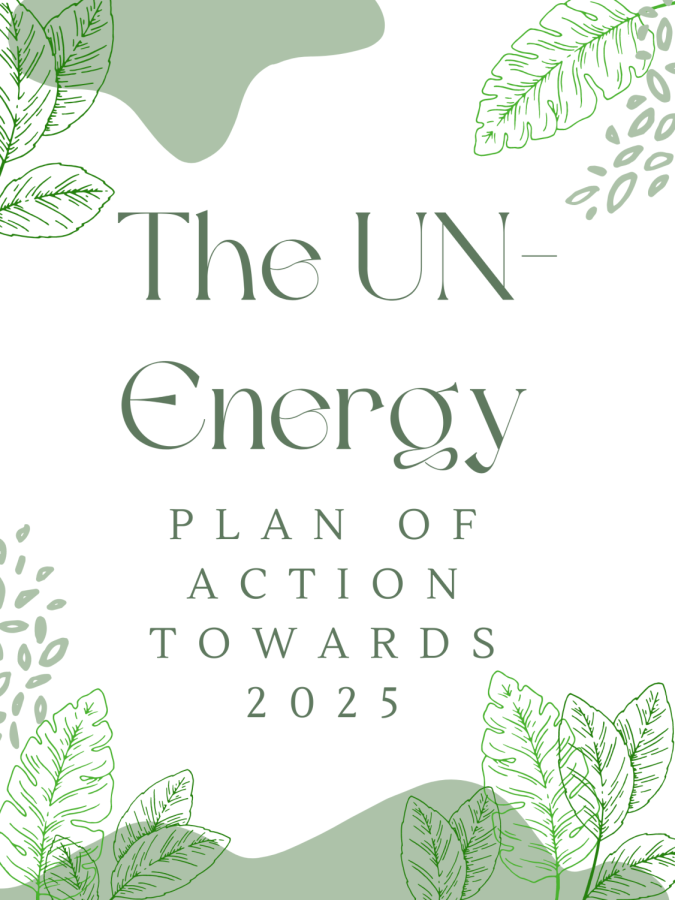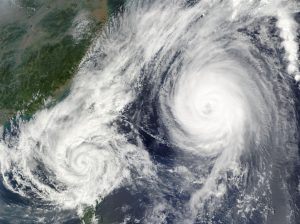The United Nations Proposes a New Energy Plan to Catalyze Action by 2025
May 6, 2022
As the global energy crisis and climate change worsen, the United Nations and its partners have launched two new initiatives to speed up actions towards achieving ”clean, affordable energy for all, and the ambitious goal of net-zero carbon emissions.”
The plan was announced on Wednesday and was created in hopes of carrying out promises made at a meeting earlier in September which laid out a global energy plan.
BREAKING: In the context of the energy & climate crises, the @UN launches the @UN_Energy Plan of Action to catalyze action by 2025 on #energy pledges including doubling renewables globally, electricity for 500 million people & clean cooking for 1 billion: https://t.co/pBT6miiKt2 pic.twitter.com/5Ob3qsDjap
— UN Development (@UNDP) May 4, 2022
Along with the UN-Energy Plan of Action Towards 2025, an Energy Compact Action Network was also launched to match with governments who seek support for their clean energy goals with supporters already pledging over $600 billion in assistance.
The plans are set to achieve a fair and inclusive energy transition with aims to ensure all people with clean and affordable energy, in line with the Sustainable Development Goals (SDG).
Liu Zhenmin, head of the UN Department of Economic and Social Affairs (DESA) and Secretary-General of the 2021 High-level Dialogue on Energy, has supported the plan.
“This will help us sustain the momentum by generating concrete action towards clean and affordable energy and net-zero emissions,” Zhenmin said.
The new energy plan lays a foundation for worldwide action that the UN says includes, “doubling annual clean energy investment globally, and facilitating electricity access for 500 million people as well as clean cooking solutions for one billion.”
The plan recognized seven areas of work: closing the energy access gap, increasing multi-stakeholder partnerships in the UN, developing a global campaign for SDG 7, ‘greening’ UN energy operations, setting up an annual global SDG 7 action form, providing data and policy guidance to key intergovernmental processes, and digitizing and visualizing monitoring and tracking to strengthen the accountability and communication of results.
“The current context has led to a wider understanding of how energy underpins the entire 2030 Agenda. It is paramount that the commitments taken at the 2021 High-Level Dialogue on Energy and COP26 are translated into actions on the ground – especially in support of the most vulnerable,” said Achim Steiner, Administrator of the UN Development Programme and the UN-Energy co-chair.
This plan could not have come at a more critical time Steiner expressed. This links with the war in Ukraine and the energy, food, and financial crises which arise as a result of it. UN-Secretary-General, Antonio Guterres, regarding the crisis has stated, “We can maximize this movement to push for the transformational change our world needs. Now is the time to turn this crisis into an opportunity.”
The Energy Compact Action Network will be supported by UN-Energy and brings together nearly 200 governments, businesses, and other civil society partners who have made commitments to Energy Compacts.
The launch of the plan has also introduced many other coalitions which express how countries and other partners can join forces through the Action Network. In Nigeria, with support from Sustainable Energy for All, UNDP, and Husk Power Systems, the country will be able to attempt to achieve its Energy Compact commitment of bringing electricity to 25 million people by 2023, using more renewable energy resources, providing electricity for public utilities, and ultimately creating many new jobs. These plans all together will be able to significantly accelerate the pace of electrization in Nigeria.
In Chile, the government of the Santiago Metropolitan Region, the energy company Enel, and the Universidad del Desarrollo in Chile announced that they will work to achieve the city’s 2030 goal to increase the end-use of electricity for transport and heating, use less polluting fuels, and to increase the use of solar energy in the region.
Along with this new energy plan, a work plan to strengthen the role of women in an energy transition was launched by the Governments of Canada and Kenya, Student Energy and ENERGIA, and coordinated by the UN Industrial Development Organization. This new plan aims to speed up action to give women equal opportunity to play a role in the energy transition and equal control over sustainable energy products and services.
Overall the Energy Compact Action Network will play an important role in the world as said by Ms. Damilola Ogunbiyi, the Special Representative of the UN Secretary-General for Sustainable Energy for All and UN-Energy Co-Chair. She stated that the plan would serve an important role “as the only global platform that brings together offers of support and requests for support of SDG7 from all stakeholders, and across different areas of the energy transition – such as energy access, efficiency and technology. By creating opportunities for collaboration, the Network will transform the billions of dollars in finance and investment committed in the Energy Compacts into on-the-ground action towards the sustainable energy future that we urgently need.”







